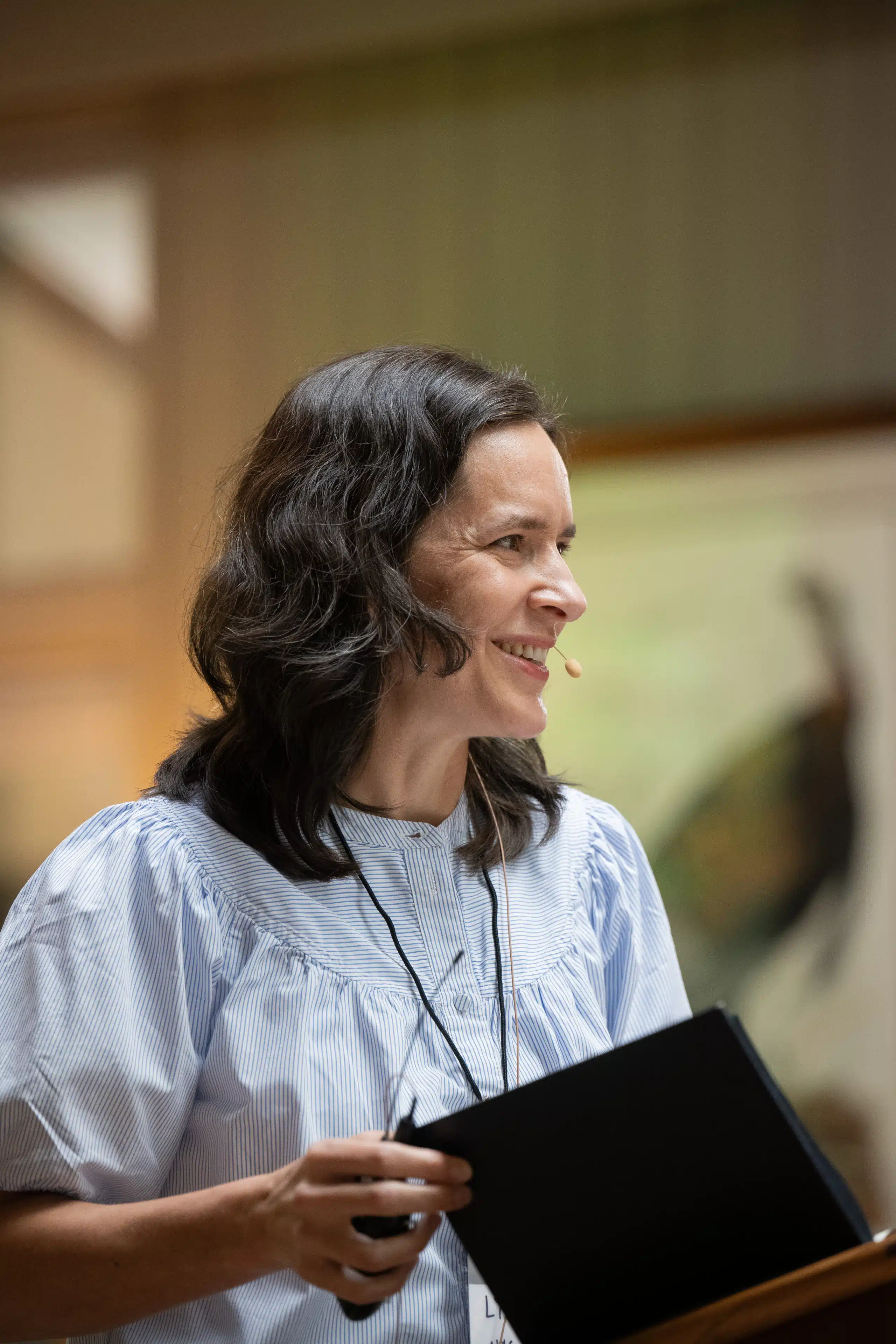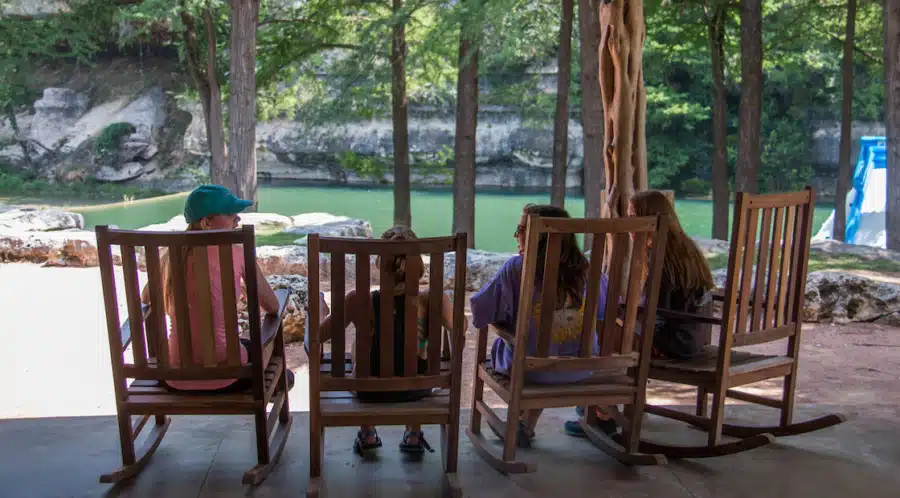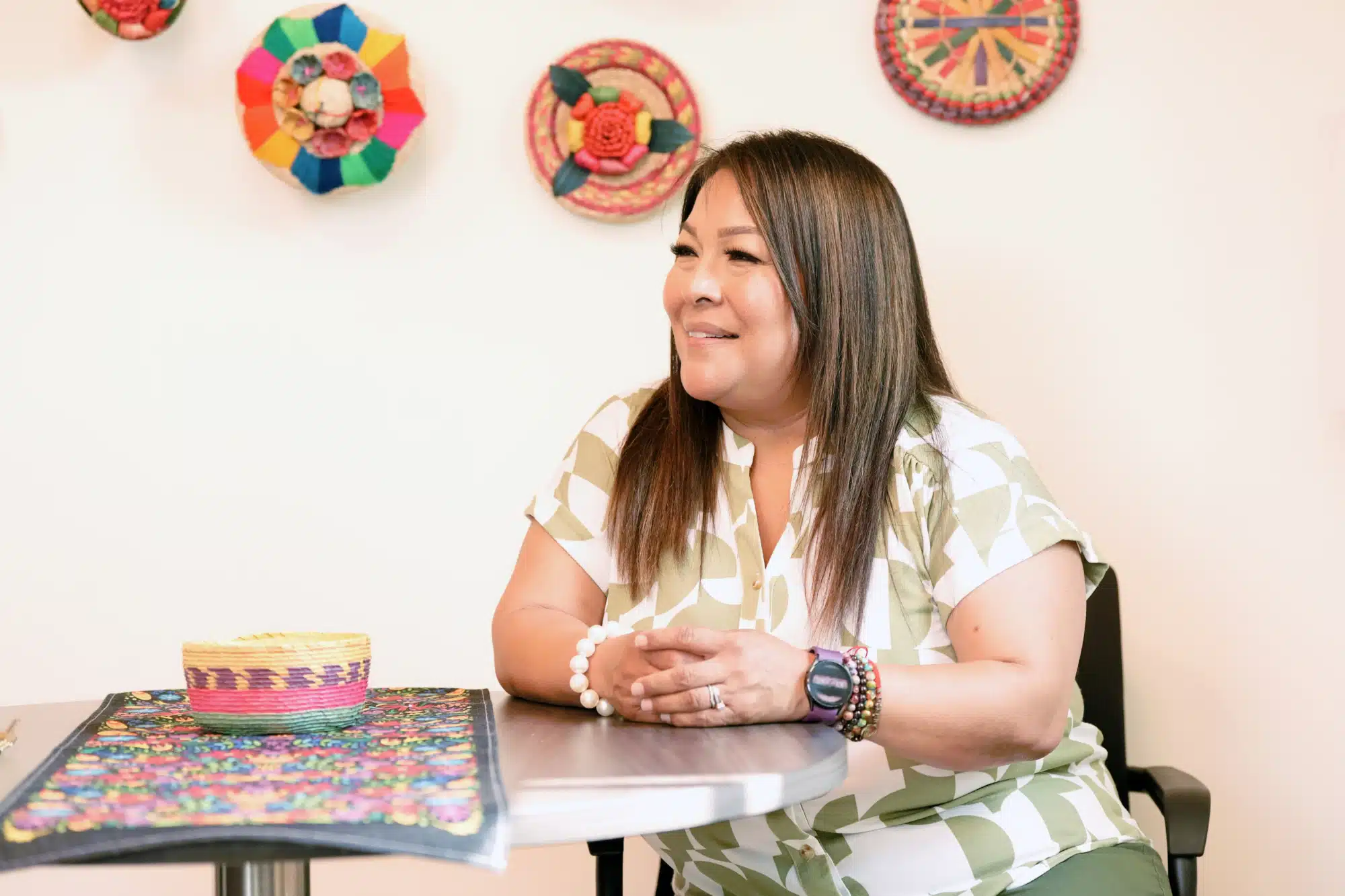
Photos by Lynz Bruce
Sandra Morales’ story shows why soul care matters for nonprofit leaders—and why the H. E. Butt Foundation is leaning in.
During her first year on the job, Sandra Morales visited a family of five in their one-bedroom house located in the heart of San Antonio’s Westside. Standing in their living room, which also served as the bedroom to all three young kids, she looked up at the ceiling where she could see bits of sky through holes in the roof. Morales was shocked.
“It was all that family could afford,” she said. “They were being abused financially by paying rent for a house that wasn’t being maintained and wasn’t suitable for children…they needed help.”
In her 16 years of service with House of Neighborly Service (HNS), a nonprofit serving the 78207 ZIP code, which is one of the poorest in the state of Texas, Morales has seen and heard her share of soul-stirring stories. She’s also lived them—this is the community she grew up in and still calls home.
As executive director of HNS, Morales carries double the burden. On the one hand, nothing happens without organizational stability, which is a struggle. She once had to call a board member and say, “I don’t know if we are going to make payroll.” On the other hand, the needs of the community are constant—assisting a family in unsafe housing, helping a child process through trauma, feeding a senior the only meal you know they’ll eat that day. Trying to address such needs takes an emotional toll.
Morales was working six, sometimes seven, days a week, and she felt the effects of her daily grind— stress headaches, little time with her husband, not taking physical care of herself. Things needed to change. Her soul was burnt out.
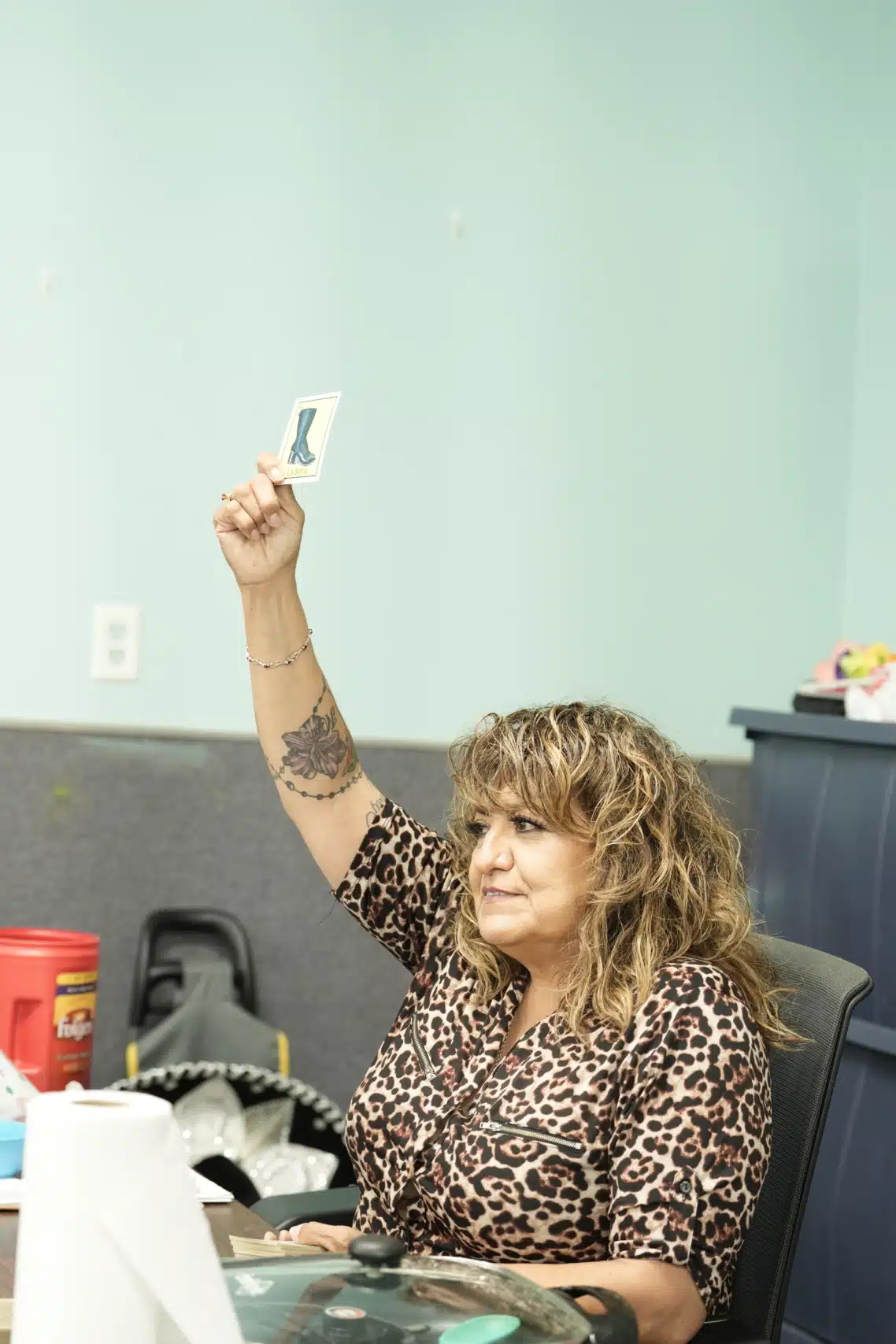
It’s Lonely at the Top — But It Doesn’t Have To Be
H. E. Butt Foundation President and CEO David Rogers first noticed a pattern of burnout among nonprofit leadership during the COVID pandemic, and recent surveys from The Center for Effective Philanthropy (CEP) indicate the problem is persistent.
In a 2024 CEP study, 95% of U.S. nonprofit leaders expressed some level of concern about burnout—with 33% of leaders saying they are “very much” concerned with their own burnout, and half reporting that they are more concerned now than last year.
So Rogers decided to try an experimental one-year initiative called Soul Care to support nonprofit leaders experiencing strain.
The Soul Care initiative was offered to executives and CEOs of nonprofit organizations who had participated in the Foundation’s early capacity building cohorts. Leaders participated in a variety of reflective and restorative activities meant to help them create an ongoing and self-directed soul care plan.
There were hands-on art workshops, restorative writing workshops, and even an exercise in deep observation while bird watching together walking along a Missions Trail in San Antonio. Most leaders attended an opening retreat held in the Canyon. There they received coaching from Executive and Life Coach Linda Roberts, who used a strength-based approach to help participants build on competencies and self-awareness within their organizations.
The nonprofit leaders were also placed in one of three small groups led by women with backgrounds in ministry, counseling, therapy, and nursing. Group conversations allowed leaders to name areas of their lives that needed attention or healing. They opened up to their small-group peers about spiritual and professional struggles.
“Nonprofit leadership is isolating. Leaders are expected to guide their organizations in the face of complex change while competing with peers for resources.”
“Non-profit leadership is isolating. Leaders are expected to guide their organizations in the face of complex change while competing with peers for resources,” said the Foundation’s Capacity Building director, Meg Loomis, who took the lead in organizing the Soul Care initiative. “We can’t lift every burden or fix every broken system, but we can provide them supportive spaces to reflect and act on what sustains their wellbeing.” The process of Soul Care “gave me permission to name my exhaustion,” said Morales. “And provided the community space to talk about it … because it’s true what they say, ‘It’s lonely at the top.’”
While Morales can talk about certain things with her administrative staff, she has to be mindful not to pass along uncertainty or anxiety. That’s how her husband became her sounding board.
“Sometimes we forget to talk about us, not just our jobs,” Morales admitted. Having a community of other leaders to talk to has been game changing for Morales. Because protecting personal relationships and setting boundaries is all part of caring for your soul.
So, Morales and her husband have implemented a sacred movie night just for them. A weekly ritual of reconnection, it’s a night with no phones or interruptions, where they leave work behind and are fully present together.
Morales also set a boundary with her late-night homework. Her old norm would’ve seen her working well past office hours only to pull out her laptop and continue working once she finally made it home. Not only were the late hours contributing to her feelings of burnout, but they were also setting a bad precedent for her staff.
“I used to be that person sending emails at 10 o’clock at night,” said Morales, who now often leaves her laptop at the office. “One time someone responded right away to a late email I sent, and I realized that’s not the culture I want to create. I don’t want my staff to feel like they have to be on at all hours.”
Staff Care Fuels Community Care
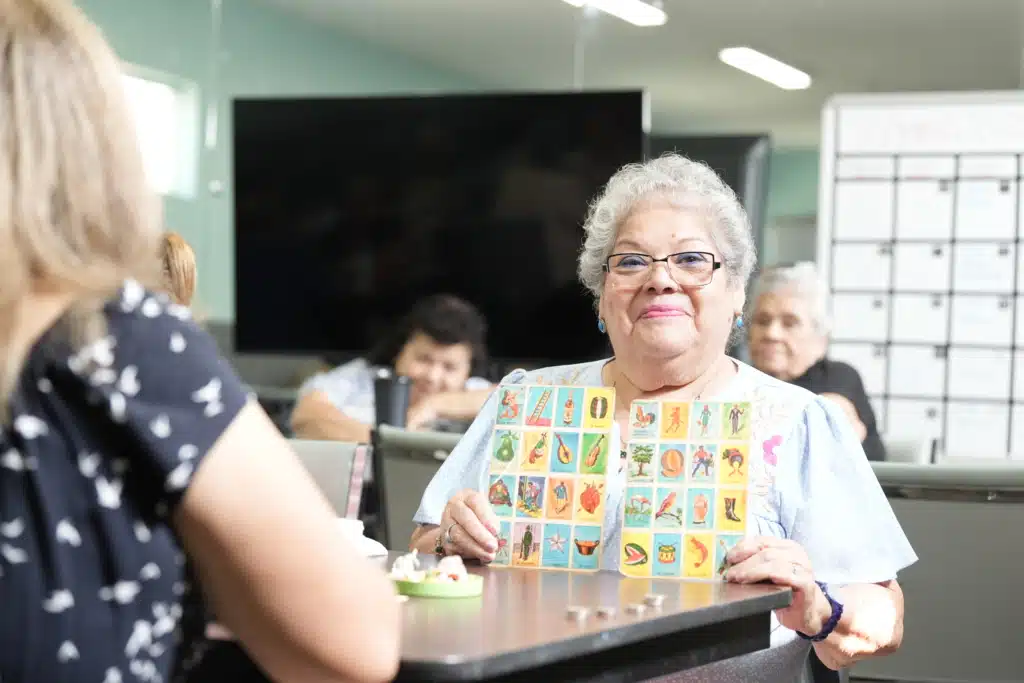
Personal wholeness contributes to organizational wholeness. As Dr. Denise Daniels, a professor at Wheaton College has told David Rogers and the executive team of the H. E. Butt Foundation: “Healthy people contribute to healthy organizations, and healthy organizations cultivate healthy people.”
House of Neighborly Service aims to be a healthy organization that cultivates healthy people—which means both the people they serve and the people who work there. Its mission is to provide opportunities that encourage, educate, and empower the families of its West Side community, like it has for the last 100 years. And the labor that goes into providing these opportunities can take its toll on each program and staff member.
Staff who work with seniors inevitably see some of the clients they love pass away every year. Staff working with families have seen a family living in a backlot shed with no plumbing, no insulation—just an extension cord stretched from the main house providing power. Staff working with children handle physical outbursts from a child with behavioral issues stemming from instability in the home. The weight of the work is grief. The weight of the work is heartache and frustration. The weight of the work is mental and physical exhaustion.
Morales knows what it means to carry this weight and, as executive director, she focuses on the wellbeing of her entire staff.
“I know they have the opportunity to work somewhere else,” admits Morales. “That’s why we take care of our staff, and they really love to work here and love the community. Finding people with passion for the mission is a huge part of sustainability.”
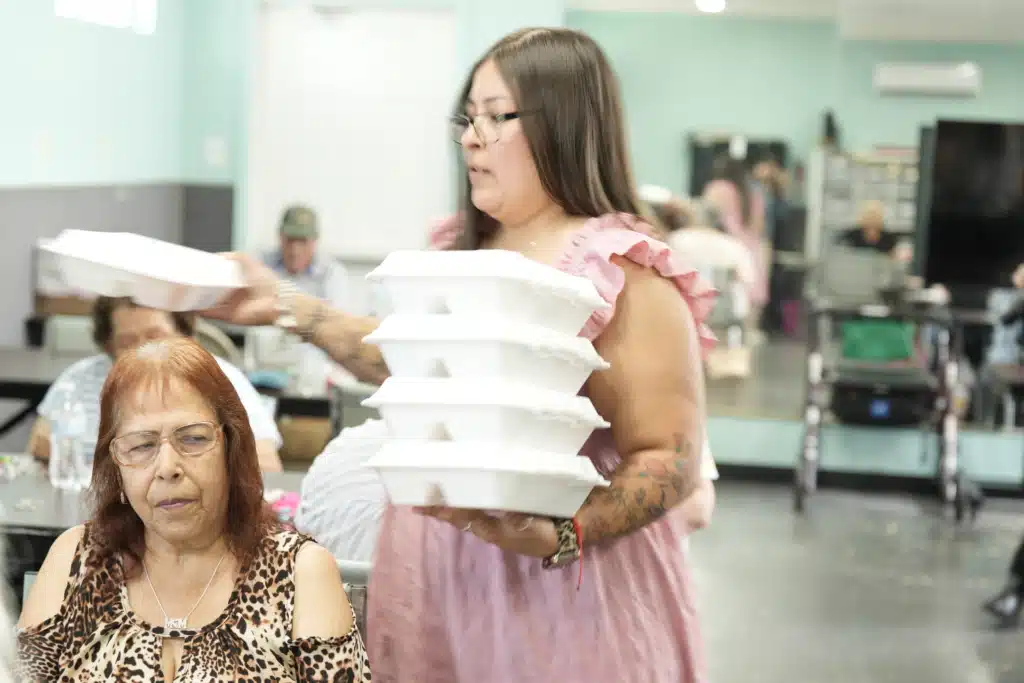
Beyond Performance
Morales and her staff are an example of how a leader striving for wholeness trickles down through an organization making it more effective. But it’s about more than effectiveness—it’s about seeing each individual as a whole person. Morales told the story of a staff member whose mother and grandmother were both diagnosed with cancer in a short time frame.
“She was dealing with all that and still coming in. So, I told her she could work from home, that I was okay with that,” said Morales. “You have to see the person, not just the work they do.”
For Morales, Soul Care was a reminder that pouring into herself means she can turn around and pour into the people who provide the services of HNS day in and day out. But caring for her soul hasn’t made all the stresses of nonprofit work magically disappear. Just ask Morales what’s troubling her this week.
“Right now, we’re planning for our fundraising luncheon on top of everything else,” said Morales. “Funding often has to take priority, or else we can’t operate.”
A crucial fundraising event may seem like a valid reason to bring the laptop home again and get to work, but there are pressures like this every week for Morales. She could easily find valid reasons to work late every night of the week.
Instead, she’ll go home at the end of the day and tend to her garden, go for a walk, or watch a movie with her husband. And then walk through the doors of HNS the next morning with renewed resilience to fight for and lead her organization.
“So goes the leader,
Simon sinek
so goes the culture.”


